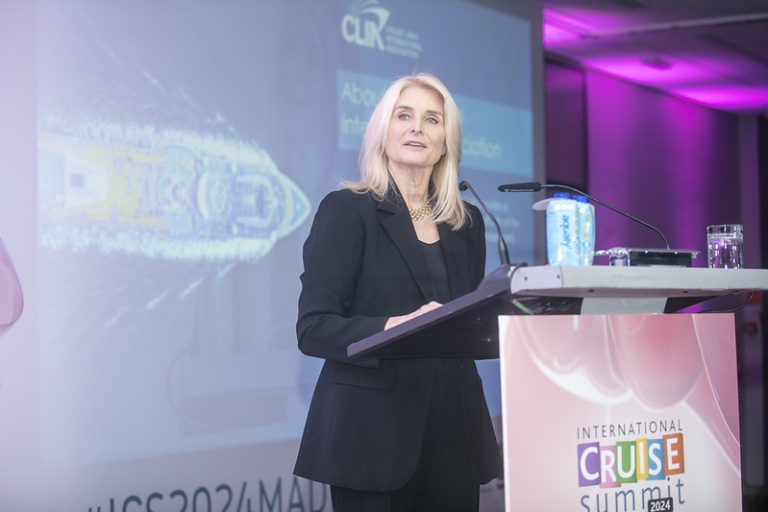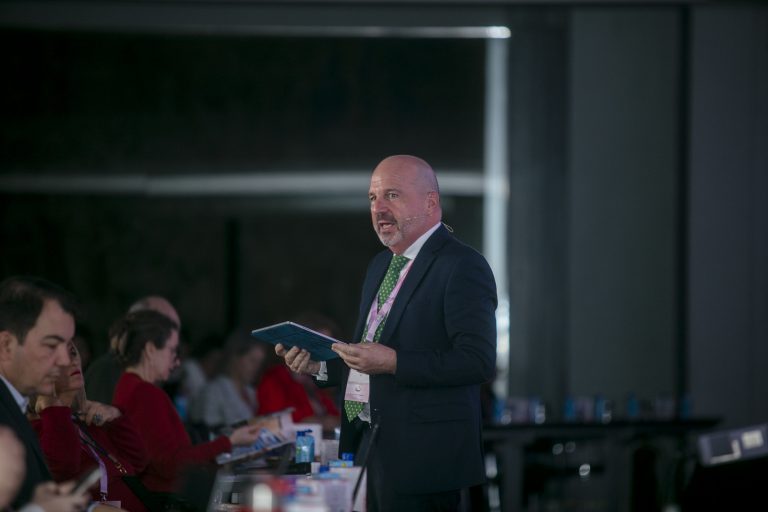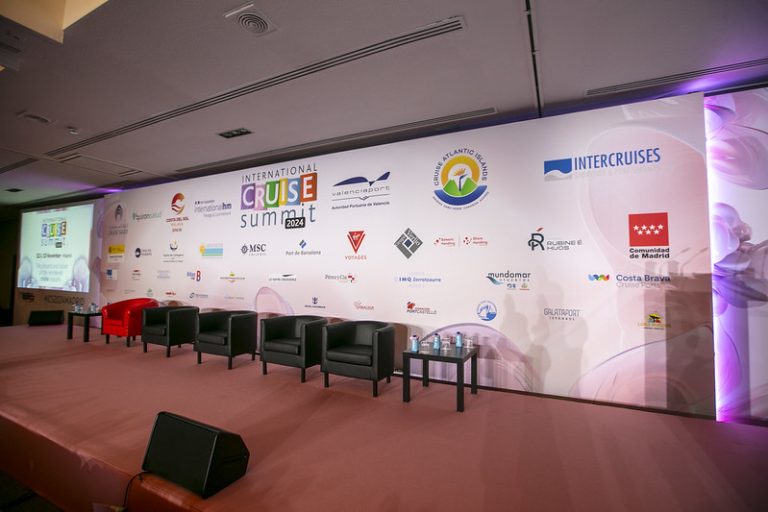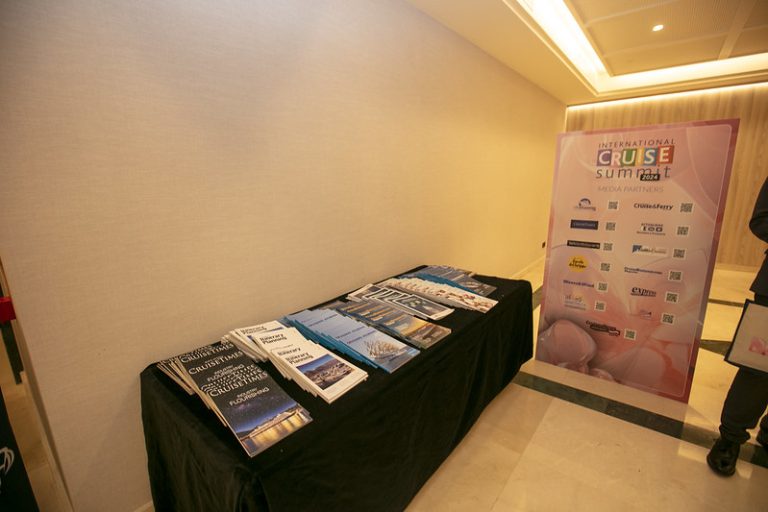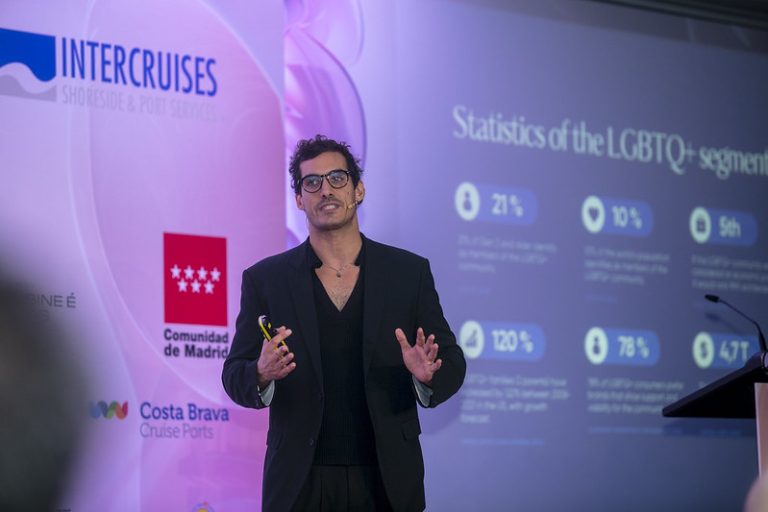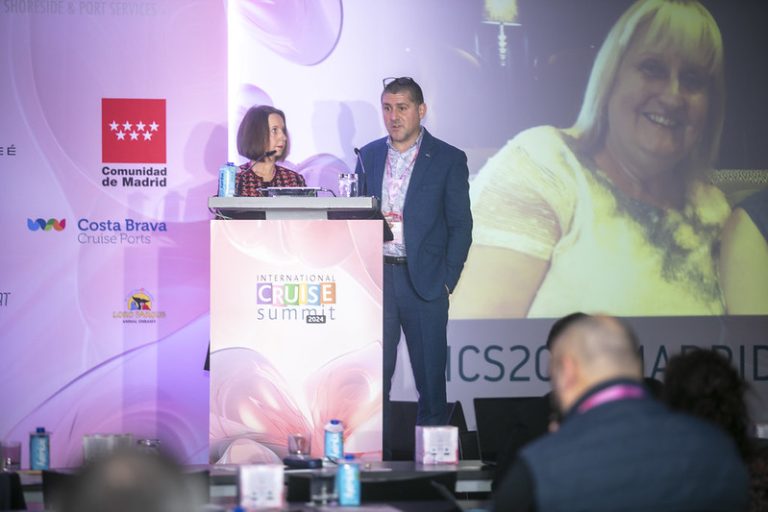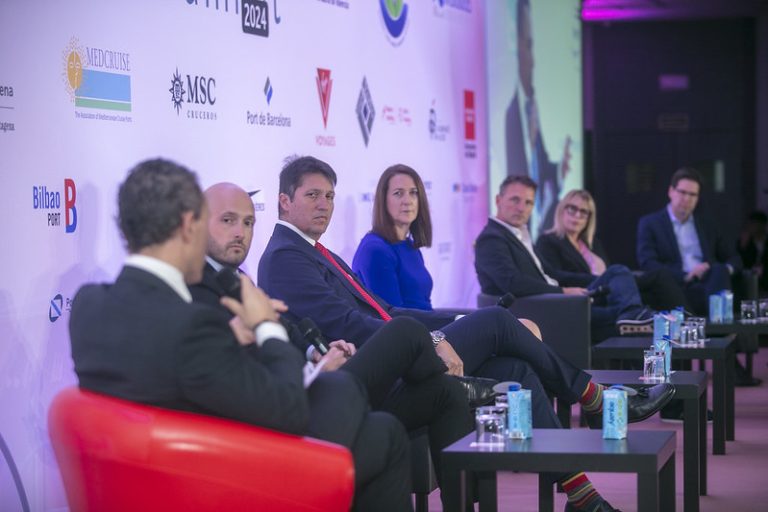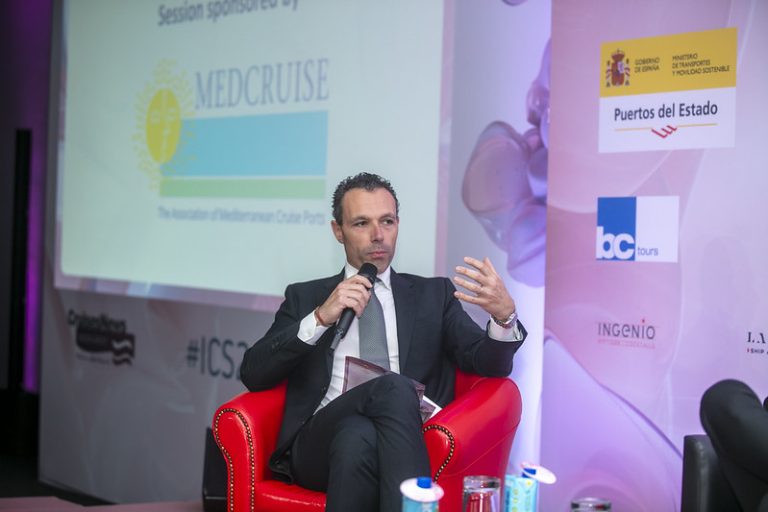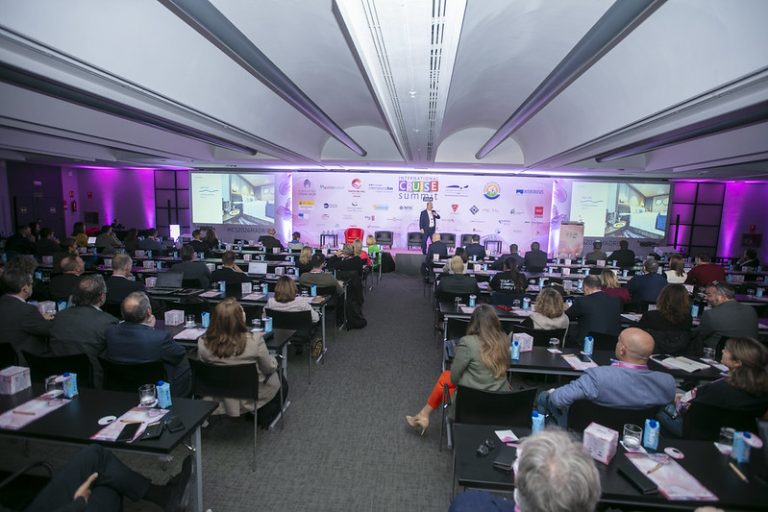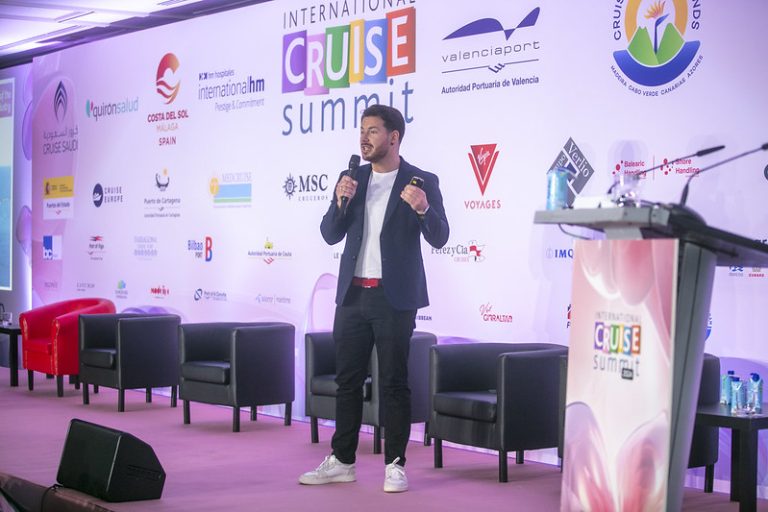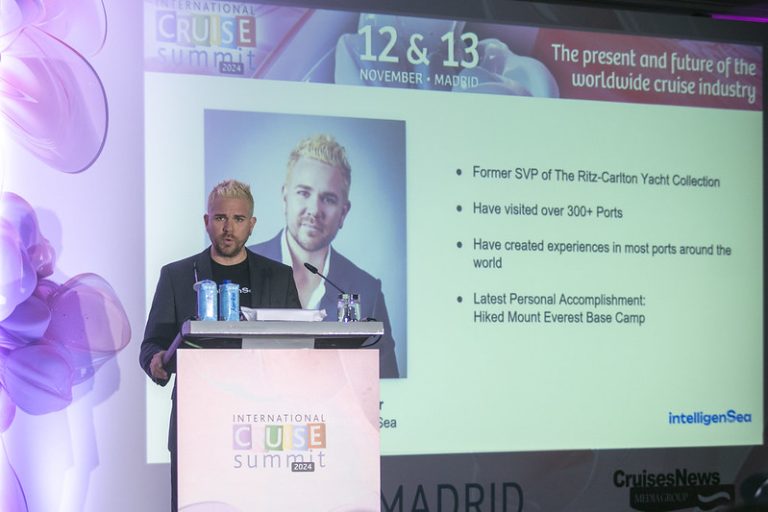ICS 2024: New Trends in the Cruise Industry
The fourteenth edition of the International Cruise Summit, held on November 12-13 in Madrid, addressed the latest trends in the cruise industry through various sessions and in-depth discussions.
The event was inaugurated by Carolina Toledo Martínez de Galinsoga, Deputy Director-General for Tourism Promotion of the Community of Madrid, and Álvaro Rodríguez Dapena, President of Puertos del Estado. The conference featured the participation of top executives from over 25 cruise lines, ports, tour operators, travel agencies, maritime agents, consulting firms, and companies from around the world.
Keynote Speech
Nicky Guerrero
After a record-breaking 2023, the cruise industry is on track to surpass its achievements in 2024, with over 34.7 million passengers, marking a 9.5% increase compared to the previous year. The main goals for European ports are to reduce atmospheric emissions, accelerate digitalization, and integrate artificial intelligence into administrative processes. In this regard, many ports are implementing projects to electrify the docks, providing energy to ships while docked, allowing them to turn off their engines when in port.
The ICS 2024 kicked off with a Keynote Speech by Kelly Craighead, President and CEO of the Cruise Lines International Association (CLIA), who provided a global overview of the current state of the cruise industry, highlighting the key future trends. Craighead emphasized the regulatory challenges the sector faces, as well as the numerous opportunities for innovation that will shape the future of cruising, from digitalization to sustainability. Following her, Nicky Guerrero took the stage to introduce the themes and guests of the day, kicking off a series of presentations and discussions that explored various aspects of the industry, including technological innovation and new regulations.
ICS 2024
ICS (1)
The day’s sessions focused on highly relevant topics. One of the most appreciated discussions revolved around artificial intelligence (AI) and entrepreneurship in the cruise industry, exploring how technology is revolutionizing the sector, improving operational efficiency, and creating new opportunities to personalize the passenger experience. The topic of cruise ship chartering was also discussed, examining how cruise lines can optimize operations and reduce financial risks through rental strategies. An important reflection also involved the collaboration between Les Roches, one of the most prestigious hospitality schools, and Silversea Cruises, exploring how managerial skills and service excellence can be enhanced through education and training.
Another topic discussed was the new EES/ETIAS border control system, which will be implemented in the Schengen Area and includes biometric data collection. This system poses a logistical and operational challenge for cruise lines and ports. The ETIAS division head at Frontex provided examples of how the system will be implemented.
LGBTQ+
Dialysis on board
A key subject that generated great interest was the issue of onboard health, particularly regarding dialysis for patients with renal failure traveling on cruises. This discussion highlighted the importance of ensuring quality healthcare services for passengers with specific medical needs, thus increasing accessibility and safety for all types of travelers. The impact of the LGBTQ+ community on the cruise industry was also explored, analyzing the growing demand for inclusivity and the importance of diverse entertainment, which today must cater to an increasingly varied audience. The session demonstrated how cruise lines are adapting to the diverse needs of passengers, offering programs and activities that are representative and inclusive.
Another point of major interest was the session moderated by Gabriele Bassi, Chief Editor of Cruising Journal. During this discussion, the evolution of how cruises are sold was explored, with an in-depth analysis of changes in traveler demographics, distribution channels, marketing strategies, and the fundamental role that travel agencies and tourist destinations play in influencing the sector’s growth. It emerged that the cruise market is becoming increasingly segmented, with companies targeting specific niches of travelers, and travel agencies being crucial in recommending the right product for each type of customer.
The evolving work of the selling cruiseproduct
Gabriele Bassi
During the conference, new cruise companies were also introduced, including Alma Cruceros, the first Spanish boutique cruise line, which will operate a small 186-passenger ship featuring cuisine by Michelin-starred chef Martín Berasategui. Alma Cruceros stands out for its focus on sustainability and the integrity of the destinations visited, aiming to preserve local communities and the environment, in line with the growing demands for social and environmental responsibility in the sector. Pedro Costa, Vice President of Sales for the company, outlined Alma Cruceros’ vision, which aims to offer an exclusive and personalized travel experience without compromising sustainability principles. Also presented were the new Saudi cruise company AROYA Cruises, and Silenseas, a ship set to begin operations in June 2026 under the Orient Express brand, using a combination of renewable energy and rigid sails.
The session on overnight port stops sparked significant interest among participating ports, as this trend, increasingly adopted by luxury and premium cruise lines, brings numerous benefits for all parties involved. Passengers can enjoy the city for a longer period, from a different perspective and likely without the crowds. For cities, this translates into a significant increase in economic impact, with greater consumption in shops, restaurants, and local attractions. Cruise lines benefit from reduced fuel consumption, leading to lower emissions, and increased excursion sales, although port fees may rise.
Alma Cruceros
Virgin Voyages
An important contribution also came from Virgin Voyages, the cruise line that presented its redesigned cruise experiences, designed to offer unique and personalized moments for passengers. Virgin Voyages highlighted how innovation and attention to detail can transform a simple cruise into an unprecedented experience, where every aspect, from entertainment to excursions, is tailored to exceed customer expectations.
A highly relevant topic was also the digitalization of processes, with Jean Pierre (JP) Salazar, Founder and CEO of Intelligensea, discussing digital strategies to enhance the onboard and onshore experience, using technology to monitor and optimize every stage of the journey. The intelligent use of data and digital platforms is increasingly essential to providing passengers with an exceptional cruising experience, elevating every moment of their journey.
Intelligensea
ICS 2024 once again provided a unique opportunity to take stock of the future of the cruise industry, exploring emerging trends and the challenges that cruise lines and ports will face in the coming years. With a rich and varied program, the event continued to be a crucial platform for exchange and idea sharing, confirming its position as one of the most anticipated and significant events in the cruise industry. The dates for ICS 2025 have already been announced: it will be held on November 18-19 at the Hotel Meliá Castilla in Madrid.
Don’t miss news, updates, and reviews on the world of cruises on Cruising Journal with photos, videos, and available cruise offers.

